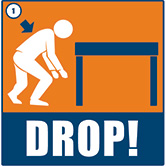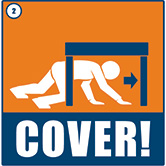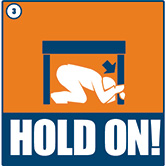Did you feel an earthquake?
Report it! You can help provide important information about the extent of shaking and damage for earthquakes in Canada.
- Visit the Earthquakes Canada website to fill out the Online Felt Report Form.
- Do not call 911 about the earthquake unless you have a life threatening emergency.
Earthquake
 Earthquakes are common in BC with around 4,000 reported annually. They are caused by continual movement of tectonic plates and can occur at any time. According to seismic experts, there is a one in three chance of a damaging earthquake in the next 50 years.
Earthquakes are common in BC with around 4,000 reported annually. They are caused by continual movement of tectonic plates and can occur at any time. According to seismic experts, there is a one in three chance of a damaging earthquake in the next 50 years.
 You can be prepared to avoid injury, minimize damage to your home and to be self-sufficient for at least seven days without help.
You can be prepared to avoid injury, minimize damage to your home and to be self-sufficient for at least seven days without help.
The most important thing to remember during an earthquake:

- DROP to the ground (before the earthquake drops you!)
- Take COVER by getting under a sturdy desk or table (or against a wall with your arms covering your head/neck), and
- HOLD ON to your shelter and be prepared to move with it until the shaking stops.
Other things you can do: